Small habits that can keep you fit all year long, even when you take a break from exercise
These simple habits can make a big difference if you do them every day

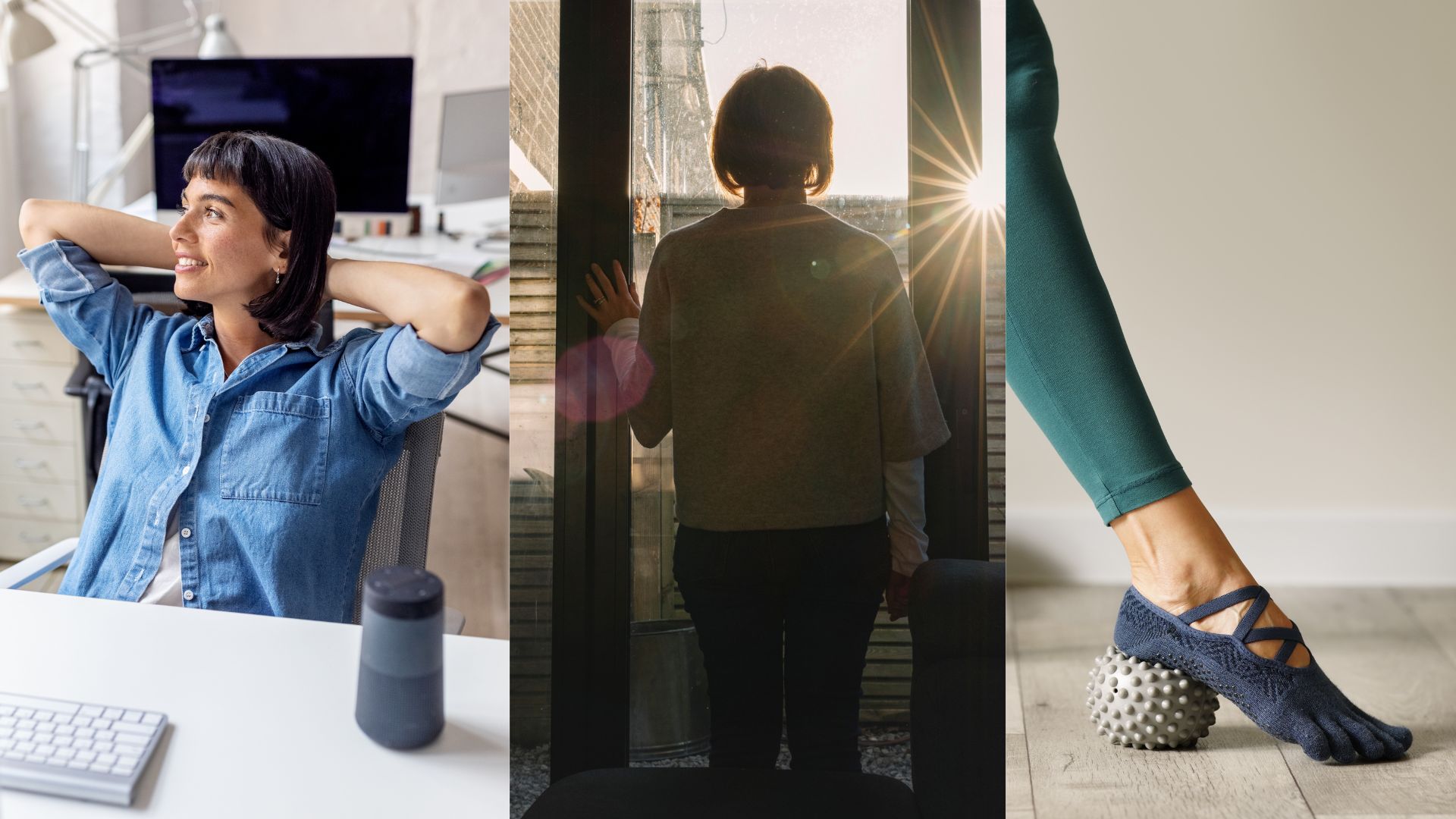
No matter your reason for taking a break from exercise, whether it's illness, a lack of motivation, or just a busy schedule, it doesn't mean your wellbeing has to go downhill.
In fact, simple movement, sleep, nutrition, and stress-reducing habits can make all the difference to our health and wellbeing during challenging times.
It could be as simple as a 15-minute walk to boost your heart health, doing mobility exercises every few days, or drinking a little more water when you can. Try one of these expert-backed ways to improve your everyday health.
Simple habits that will keep you fit all year long
Regular walking

A study, published in the American Journal of Preventive Medicine, found that those who did a brisk 15-minute walk every day were 20% less likely to die prematurely.
To work out whether you're walking briskly enough, keep an eye on your breathing. If you can maintain a conversation but wouldn't have the breath to sing, then your pace is about right.
Getting enough sleep

Most adults need between seven to nine hours of sleep every night, although this depends on individual factors like age and lifestyle.
Making sure you hit this amount by improving your sleep hygiene and maintaining a regular routine could help boost general wellbeing, boost energy, and improve focus throughout the day.
Sign up to our free daily email for the latest royal and entertainment news, interesting opinion, expert advice on styling and beauty trends, and no-nonsense guides to the health and wellness questions you want answered.
Cutting back on alcohol

Alcohol is a depressant, and according to The Priory, it can take up to two weeks for the brain to recover from a hangover. So, if you find yourself drinking a lot and feeling lethargic after one too many drinks a little too often, try cutting back to improve your wellbeing.
"My tip is to find another way to unwind. This starts with creating a fun ritual to look forward to. For many people, it's not about craving alcohol, it's about looking forward to unwinding," Megan Lyons, a certified clinical nutritionist, previously told woman&home.
Always taking the stairs
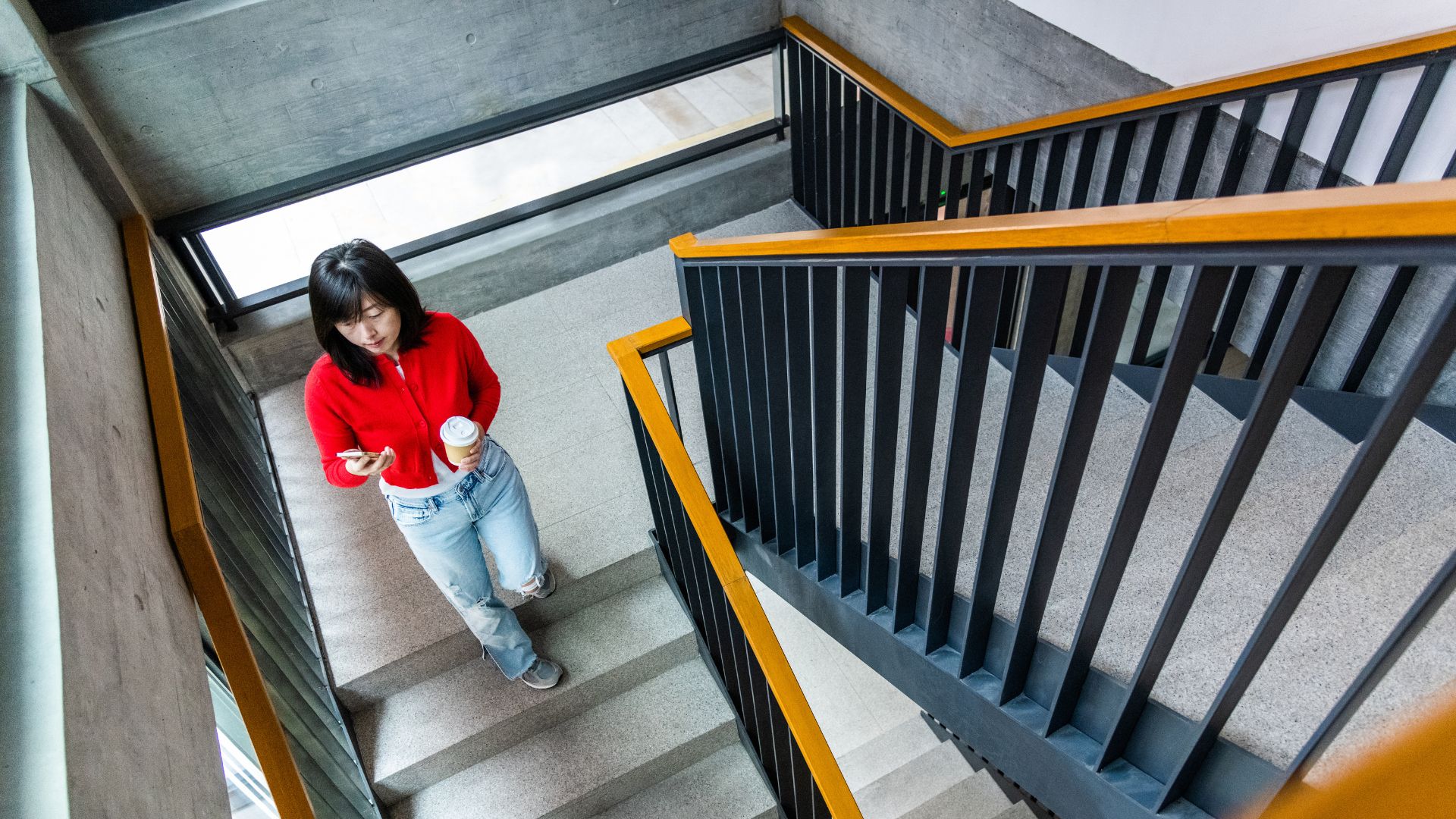
Sometimes known as 'exercise snacks', bouts of exercise done throughout the day and in tiny amounts can add up to a lot by the end of the week and will make very little difference to your daily routine, but can offer a lot of health advantages.
Taking the stairs instead of the lift or an escalator is an example of exercise snacking.
Recent studies have shown that exercise snacks can boost cardiovascular fitness, blood sugar stability, reduce the risk of cancer, and improve general metabolic health.
Waking up at the same time every morning
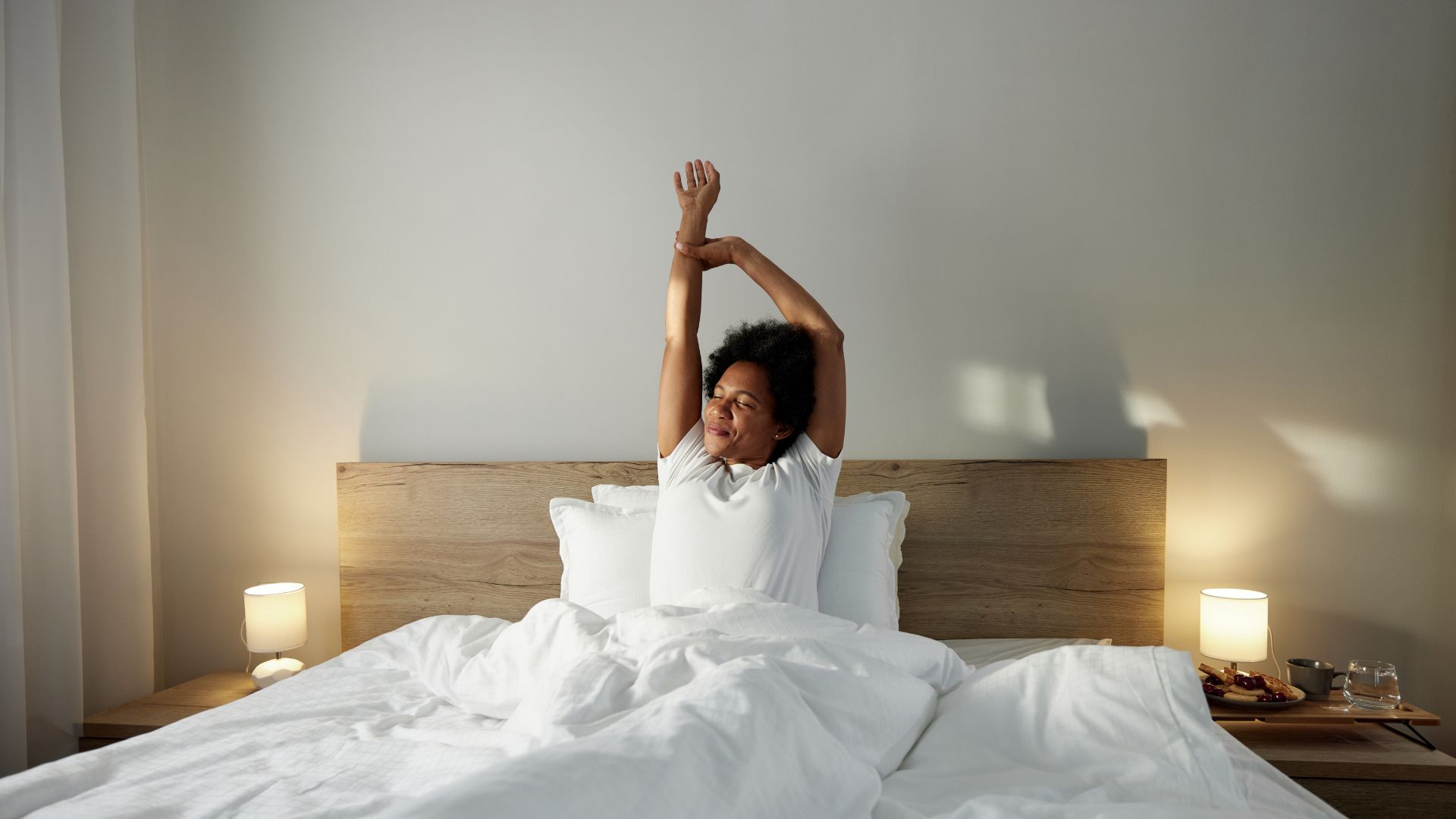
If you want to know how to sleep better, start by looking at the time you go to bed every night and wake up in the morning. While it sounds like a small thing, keeping it regular throughout the week could make a big difference.
A study by King's College London found that small differences in sleeping habits between weekdays and weekends could contribute to unhealthy changes in gut bacteria. Even 90 minutes of irregularity was found to harm the type of bacteria found in the gut.
Prioritise whole foods

Whole foods include fruits, vegetables, whole grains like brown rice, pasta, and oats, beans, lentils, nuts, seeds, fresh meat, fish, and eggs.
Diets rich in these foods have been linked to improved heart health, blood sugar management, weight management, and a lower risk of serious diseases like diabetes and cancer.
Limit caffeine after lunchtime
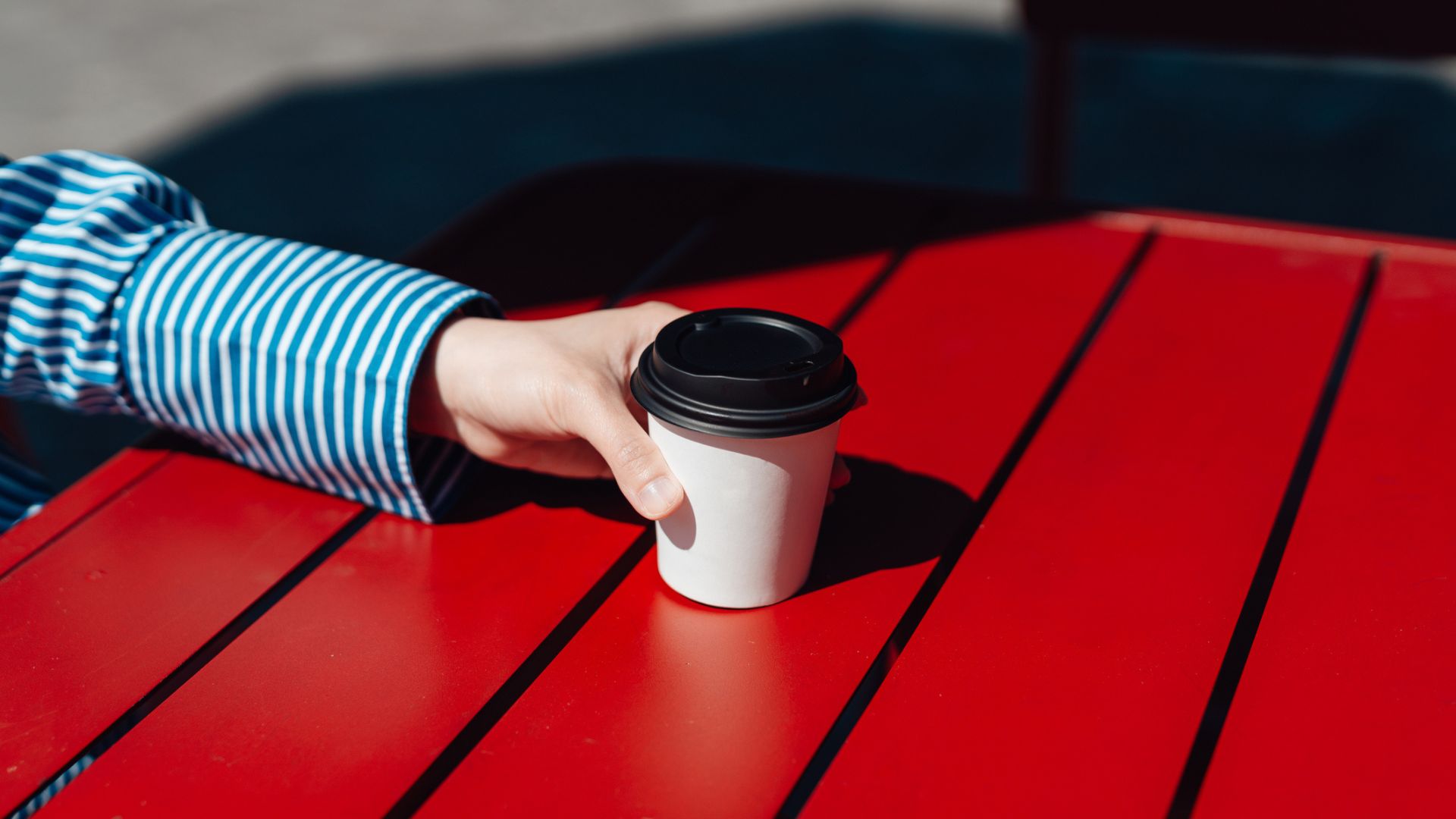
As much as it's important to prioritise sleep hygiene and your schedule if you're looking to improve your sleep habits, it's important to look at the impact of your daytime choices on your nighttime health.
Caffeine has a half-life of three to seven hours, although it can be up to 12 hours for some people. That means that for every three to seven hours that go by, the amount of caffeine in the body halves. If it takes you 12 hours to process caffeine and you finish up your last coffee at lunchtime, it's likely going to impact your sleep.
Spend more time outdoors

Being outdoors has benefits away from any movement, stress-reduction, or nutritional benefits you get out there. Studies show that simply being in nature, whether that's by the sea (Blue Health) or in the trees, has a positive effect on the body.
For example, a study by Exeter University found that being by the sea has restorative effects and helps reduce stress.
Move around every hour
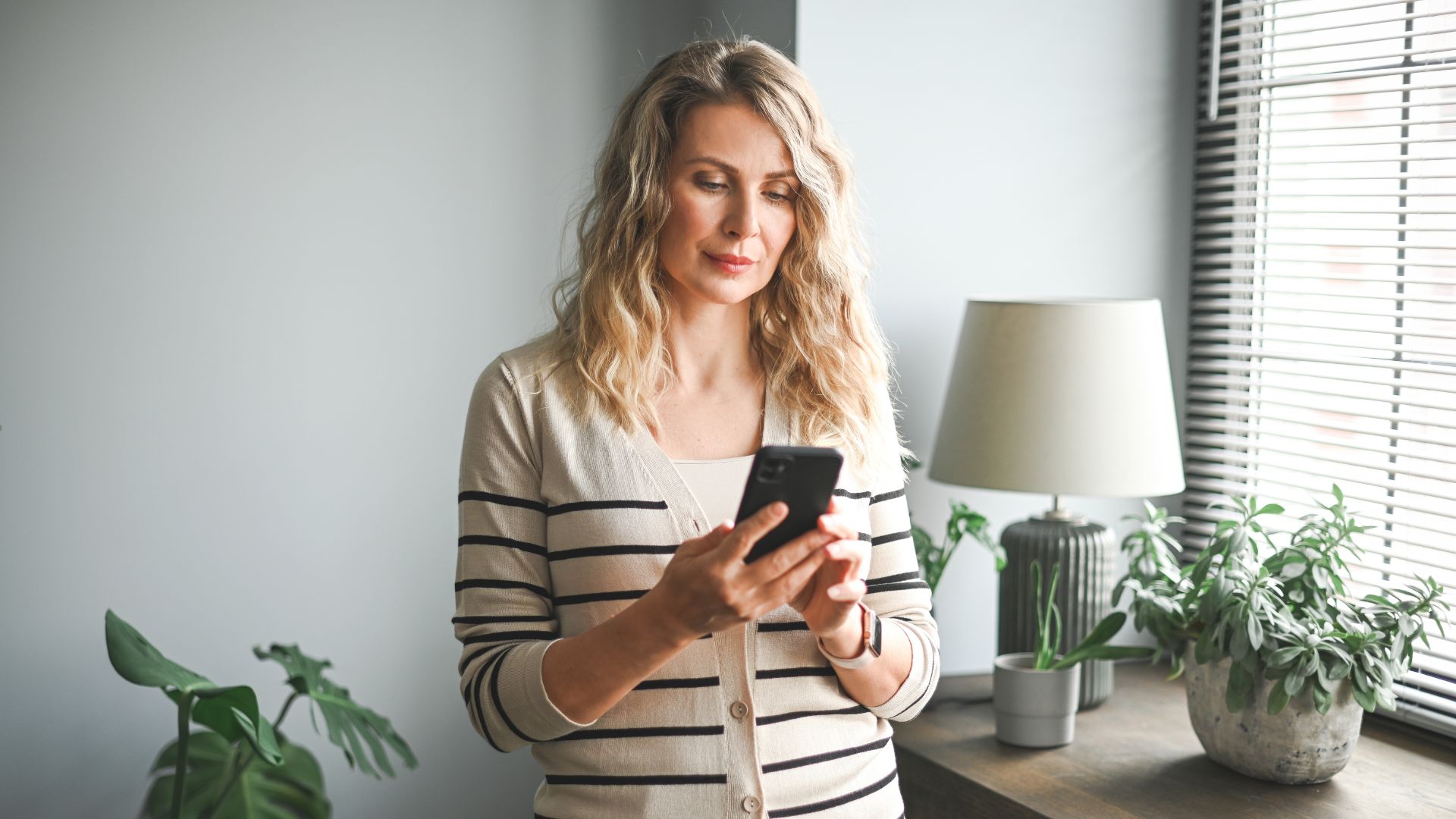
A study in the European Heart Journal found that every two hours a day spent sitting is associated with an increase in waist size, weight, blood sugar levels, and cholesterol.
So, if you work at a desk, one of the easiest ways to boost your wellbeing is to stand up at least every hour and move around.
Stretch for 10 minutes a day
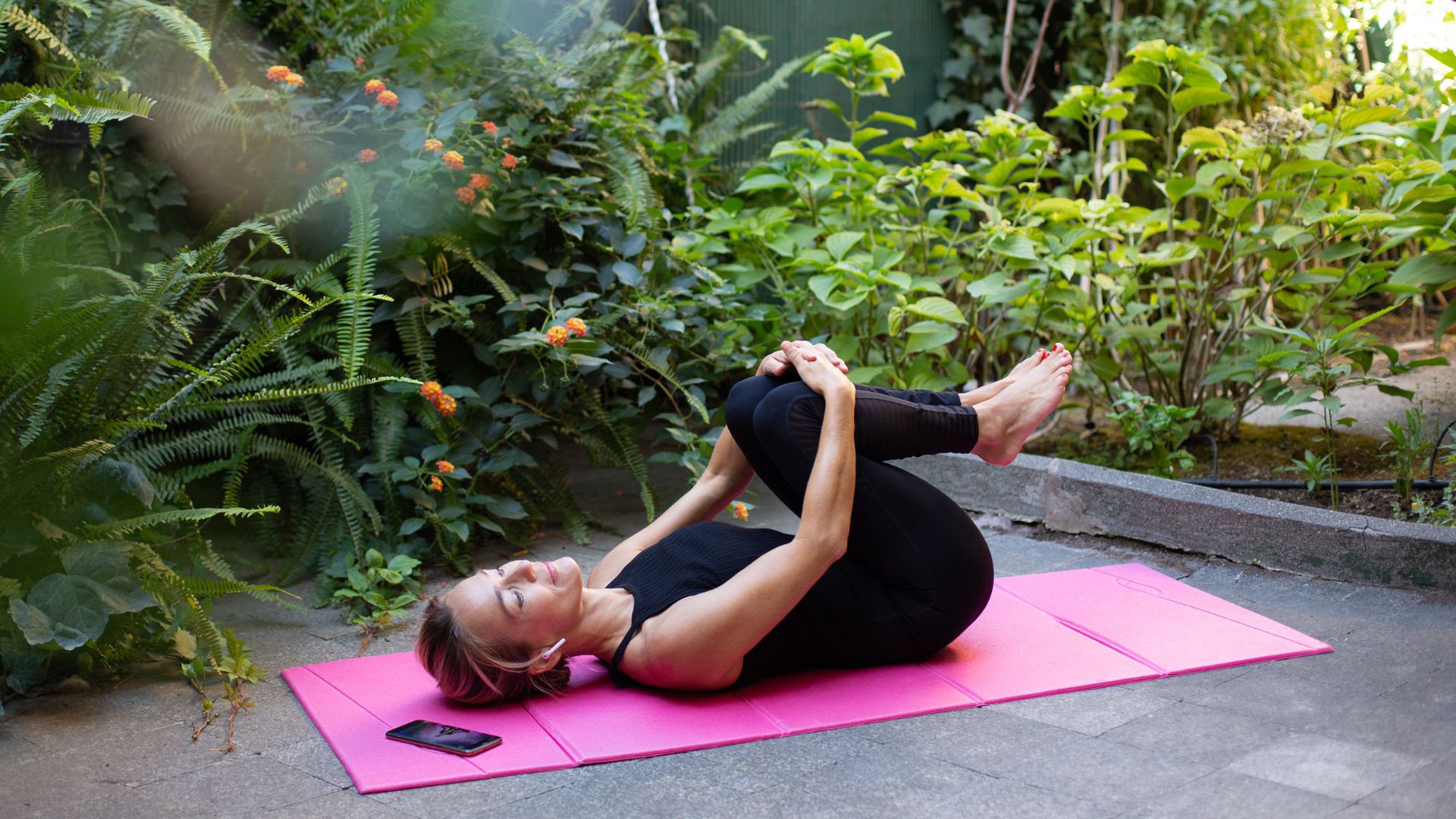
Exercises that improve flexibility are always going to be the best exercises for longevity, but you don't need to spend hours in Pilates or yoga to see the benefits.
Simply stretching for 10 minutes every day can stretch out your muscles, alleviating tension and stiffness and contributing to better everyday movement.
Drink plenty of water

Another simple way to look after yourself without doing any exercise is to drink more water - especially in the summer and warmer months. But even in winter and the colder months, it's essential to stay hydrated.
A three to five per cent of body fluid loss can cause symptoms like dry mouth and fatigue, leading to a drop in concentration, focus, energy levels, and motivation.
The NHS recommends drinking six to eight glasses a day, which works out to almost three litres.
Wear wrist and/or ankle weights around the house
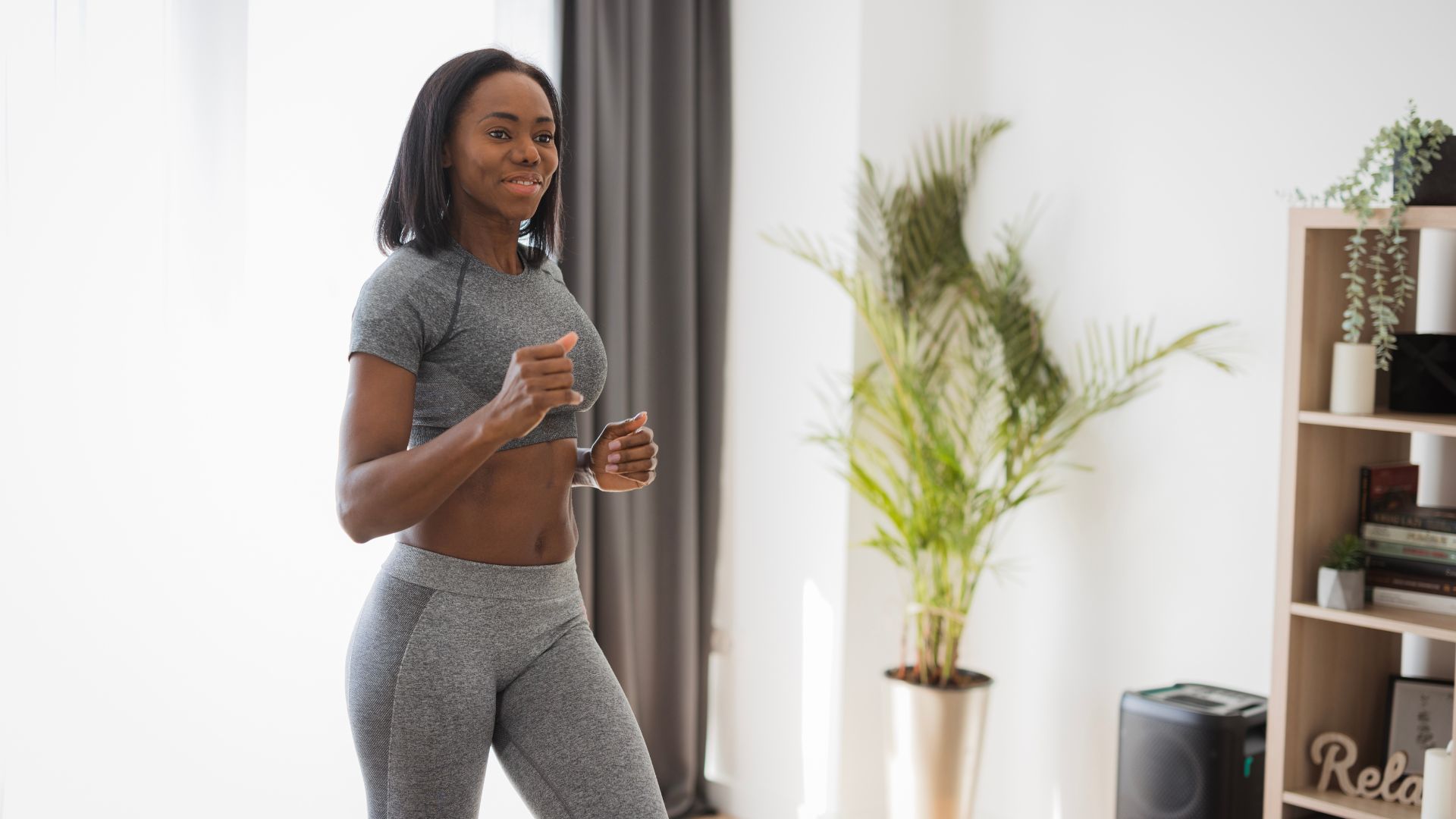
An easy way to do exercise without even realising it is to wear a pair of ankle or wrist weights around the house. The weight acts as resistance, making the muscles work harder to do everyday activities like walking and climbing the stairs.
Especially for those new to resistance training, this can make a huge difference and be a simple way to keep muscle fibres under pressure while you're spending time away from the gym and your normal exercise routine.
Socialise in active ways
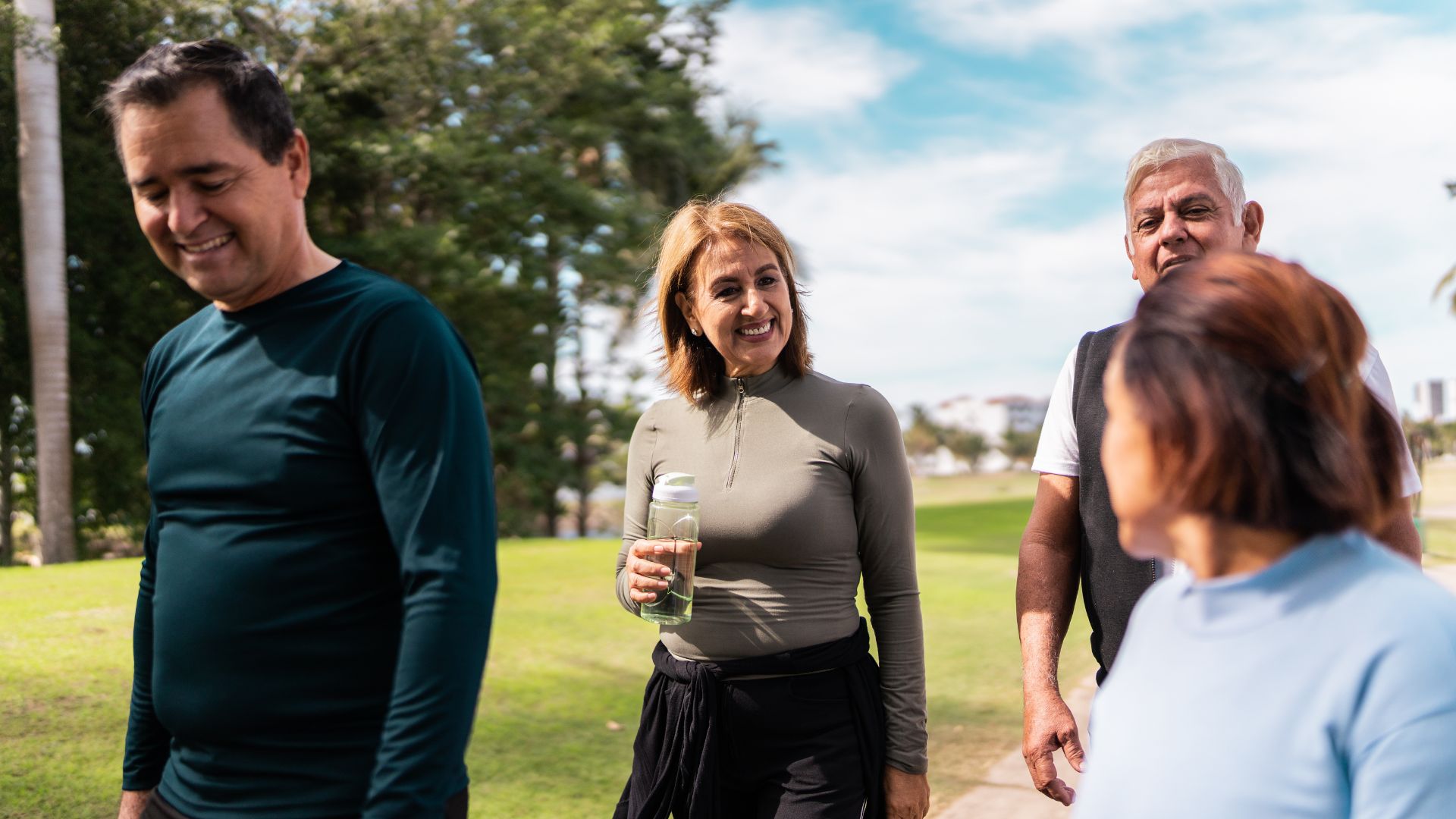
Going for a walk with friends ticks two boxes in one afternoon - you're socialising and catching up with friends, which is good for the mind, but also getting in steps, which is good for the heart, lungs, and muscles.
To get the most out of the exercise, keep it brisk. You should still be able to hold a conversation, but shouldn't be able to sing or shout.
Get sunlight first thing in the morning
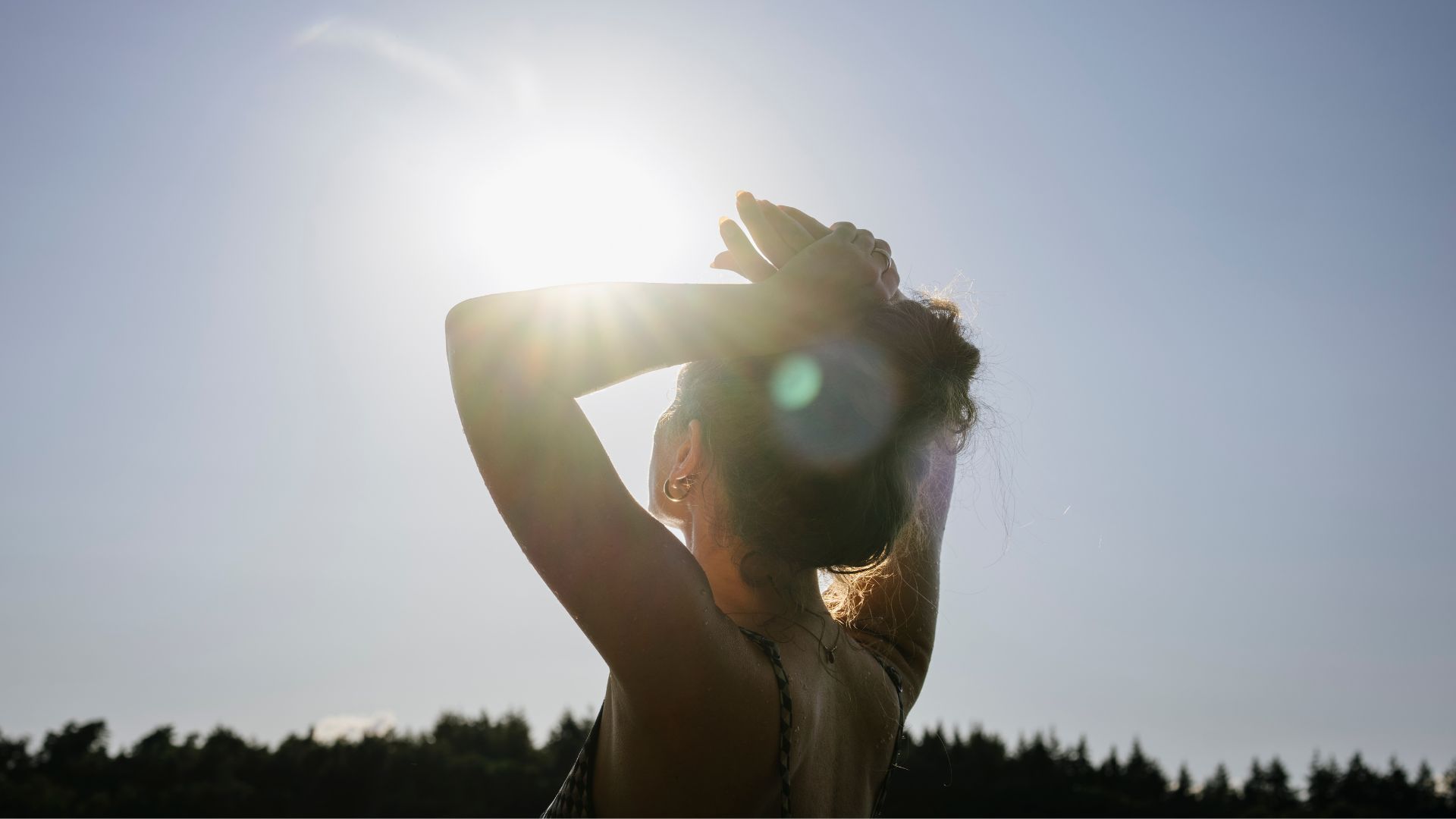
It can be tempting to roll over and look at your phone first thing in the morning, but if you can pivot to looking outside instead, you could be benefitting your sleep and energy levels.
Sunlight regulates our circadian rhythms, improves sleep and mood, and helps the immune system function properly.
Invest in a smartwatch
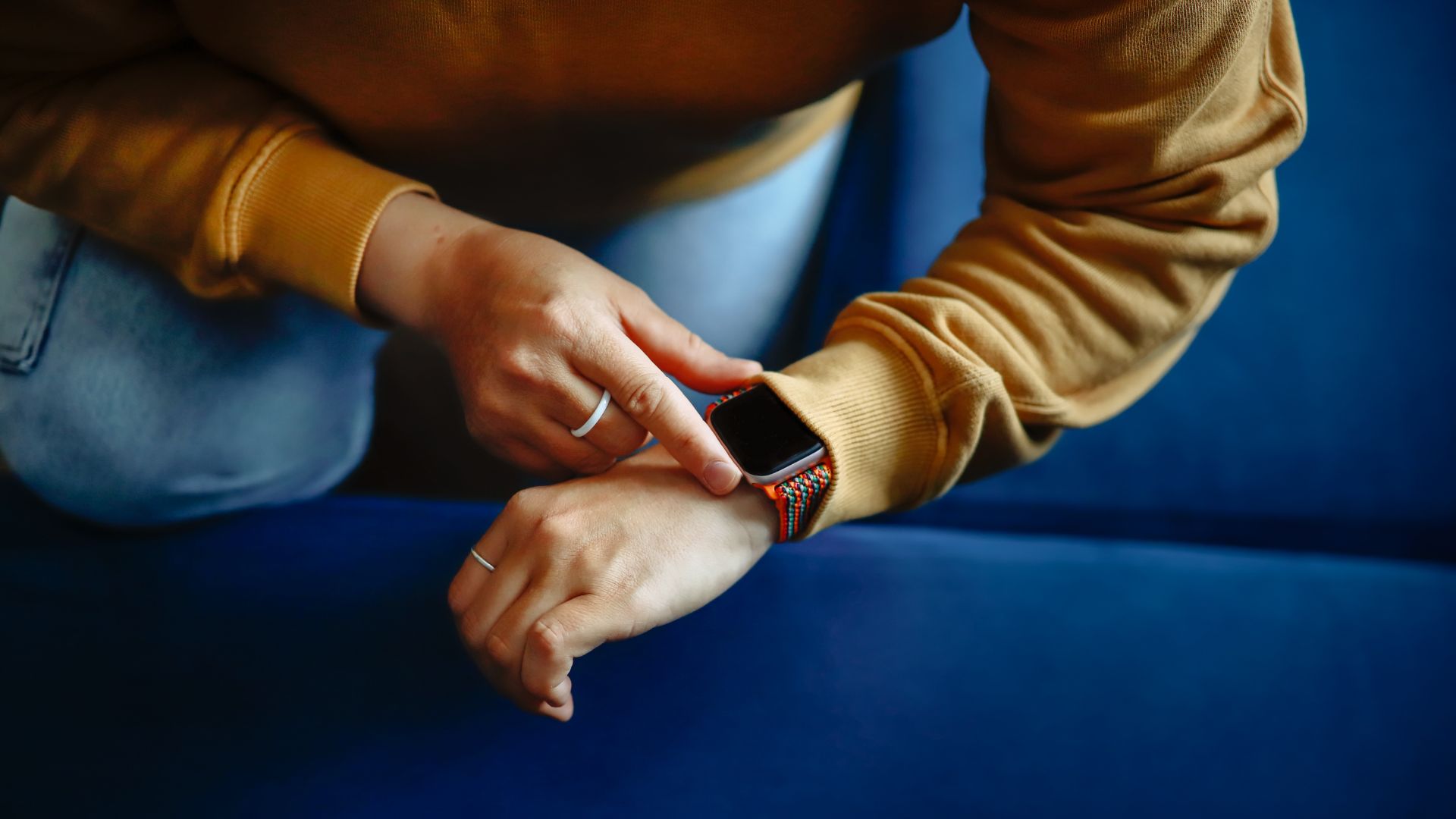
If your break from exercise is down to a lack of motivation, having one of the best fitness trackers on your wrist can help. It doesn't need to be a big investment - many are available for under £100.
Fitness trackers record step count, heart rate, sleep, stress, and much more. Looking at this data at the end of the day can help you prioritise your health in new ways and encourage you to make small changes to your day, like getting a few more steps in.
Stand on one leg while brushing your teeth
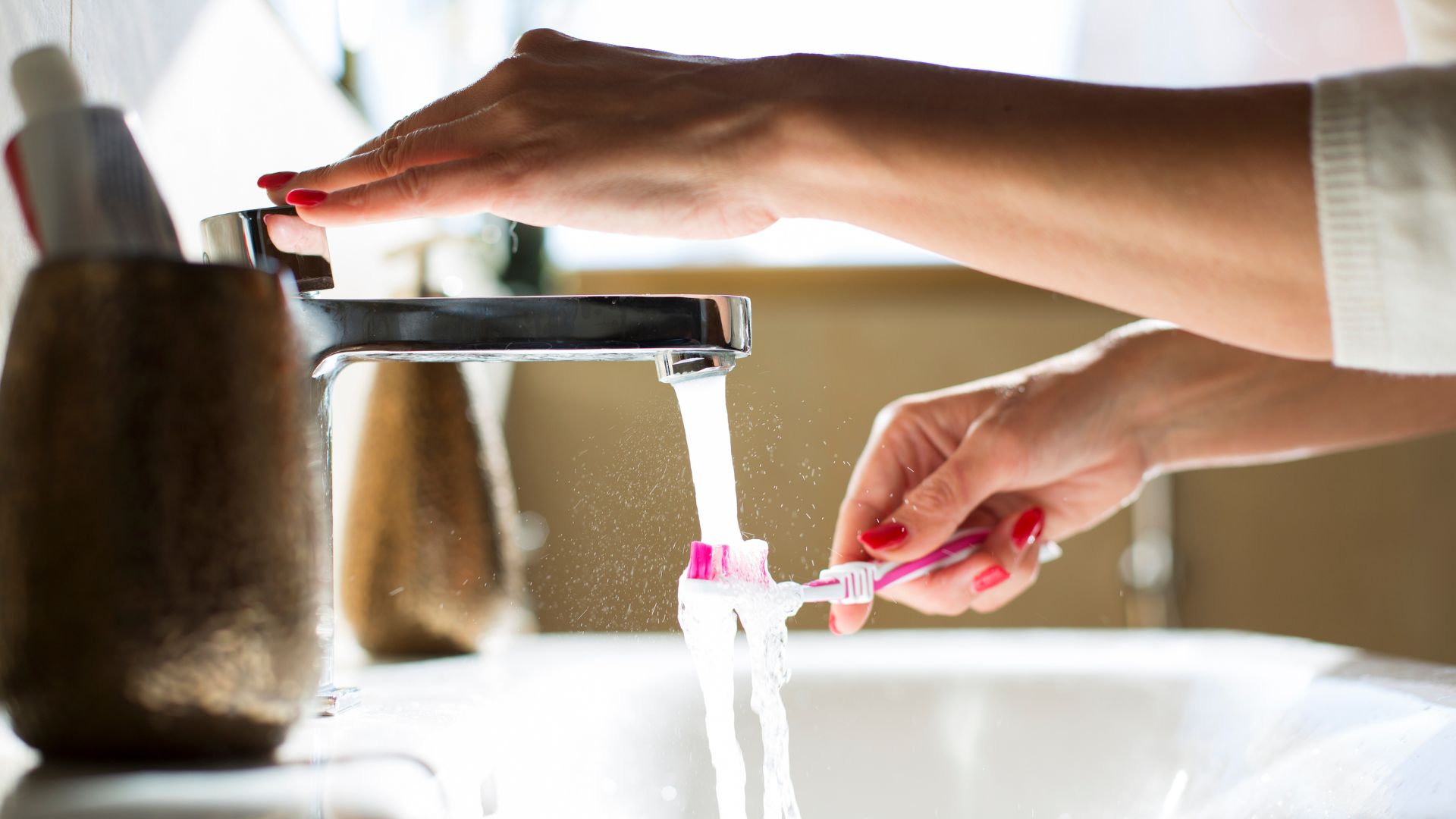
Good balance is key to longevity, so it's good to practice it in daily life. Standing on one leg while you brush your teeth is a good way to do this as you challenge your balance and stability while distracted.
Plus, it's two minutes where you're not doing anything else, so will remember to stand on one leg every time.
Focus on good posture
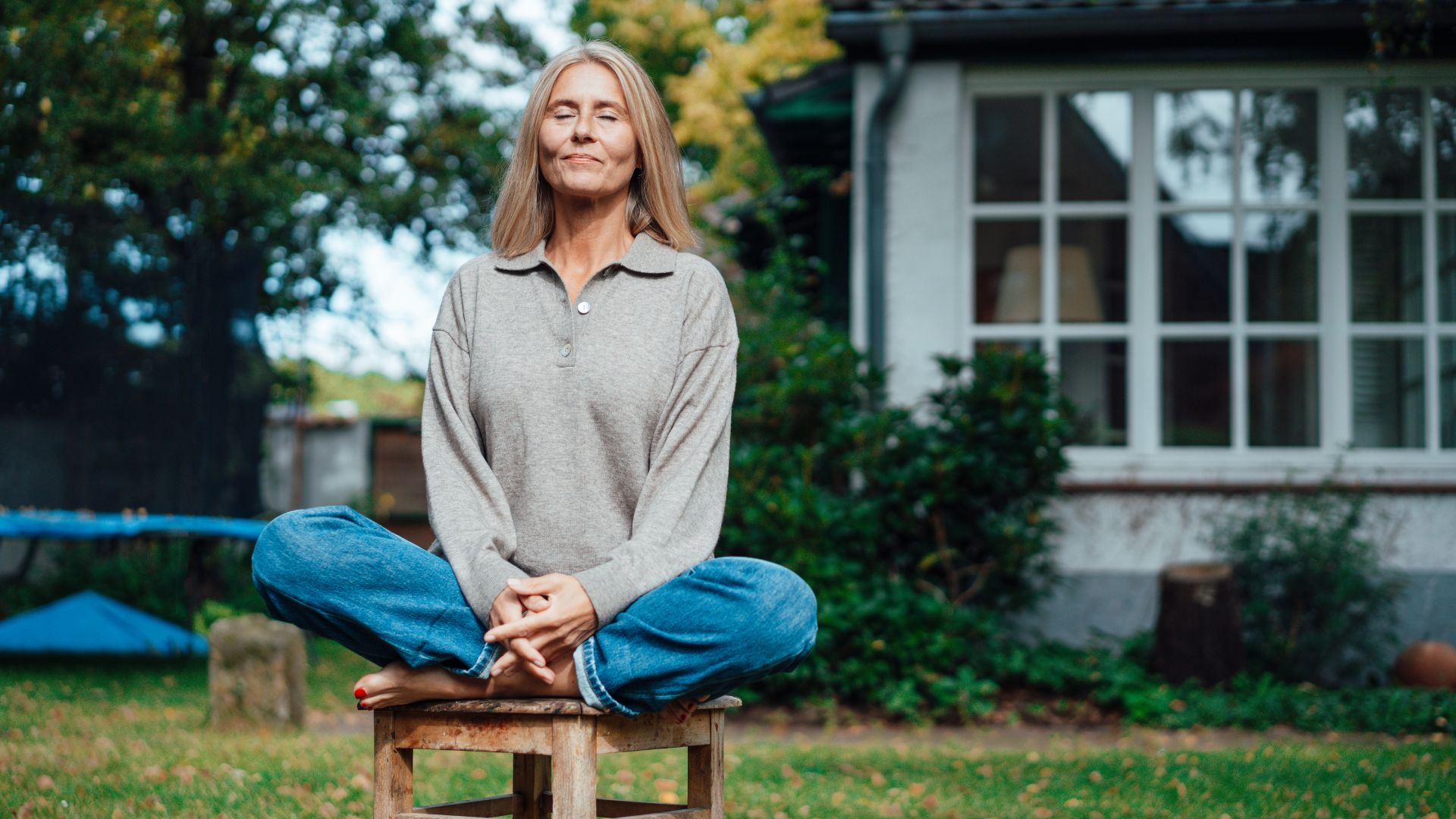
Just as having good stability and upper-body mobility improves posture, having good posture supports the upper body.
Regardless of whether you're sitting down or standing up, be aware of how your upper back, neck, and shoulders are sitting, and keep your body in alignment with your head level with your spine. Your shoulders should be pulled back but relaxed, and stomach pulled in gently.
Park further away

Much like how taking the stairs will boost your movement through the day without you even trying, so will parking your car further from your house, workplace, or other mode of transport.
It might not sound like a lot, but even a few hundred extra steps can make a difference for your body and your mind.
Prioritise protein
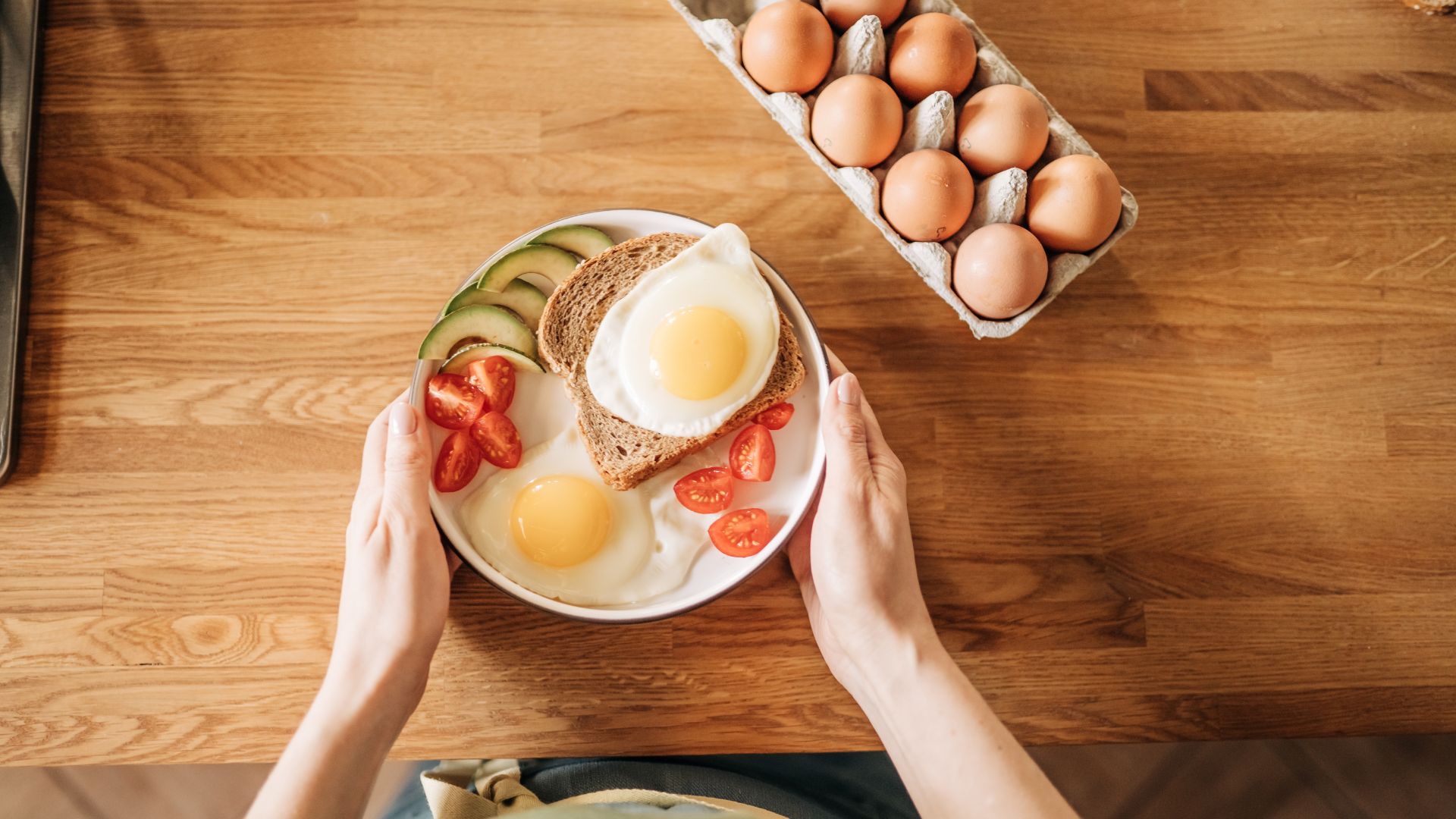
Protein is one of the most important macronutrients in the body. It helps muscles to grow and repair after pressure from daily life and exercise. It's also very filling, meaning you need less food to feel full and are likely to feel more satiated after eating.
In turn, this can help you avoid ultra-processed and sugar-filled foods that'll harm your mental and physical wellbeing.
Avoid eating late at night

While it's always better to have something to eat later in the evening than going to bed hungry, eating too close to bedtime can disrupt your sleep as your body directs its energy to processing your food, rather than drifting off.
Try to have your last meal at least two hours before you go to bed.
Avoid news overload

While it's important that we stay up to date with what's happening in the world, a constant barrage of bad news can trigger our fight or flight instinct, manifesting in anxiety, difficulty concentrating, irritability, and feelings of hopelessness.
So, to maintain your wellbeing, try to limit news intake to the essentials and take regular breaks if you need to.
Optimise your ergonomics

If you spend a lot of the day sitting down at a desk, it's vital that your desk is set up to be as ergonomic as possible.
For example, make sure your chair is adjustable to support your height and reach, and that you have a standing desk if you find it more comfortable to move between sitting and standing throughout the day.
Other ergonomics include anti-glare on your laptop or screen and keyboards designed for a more comfortable wrist alignment.
Prioritise active commuting
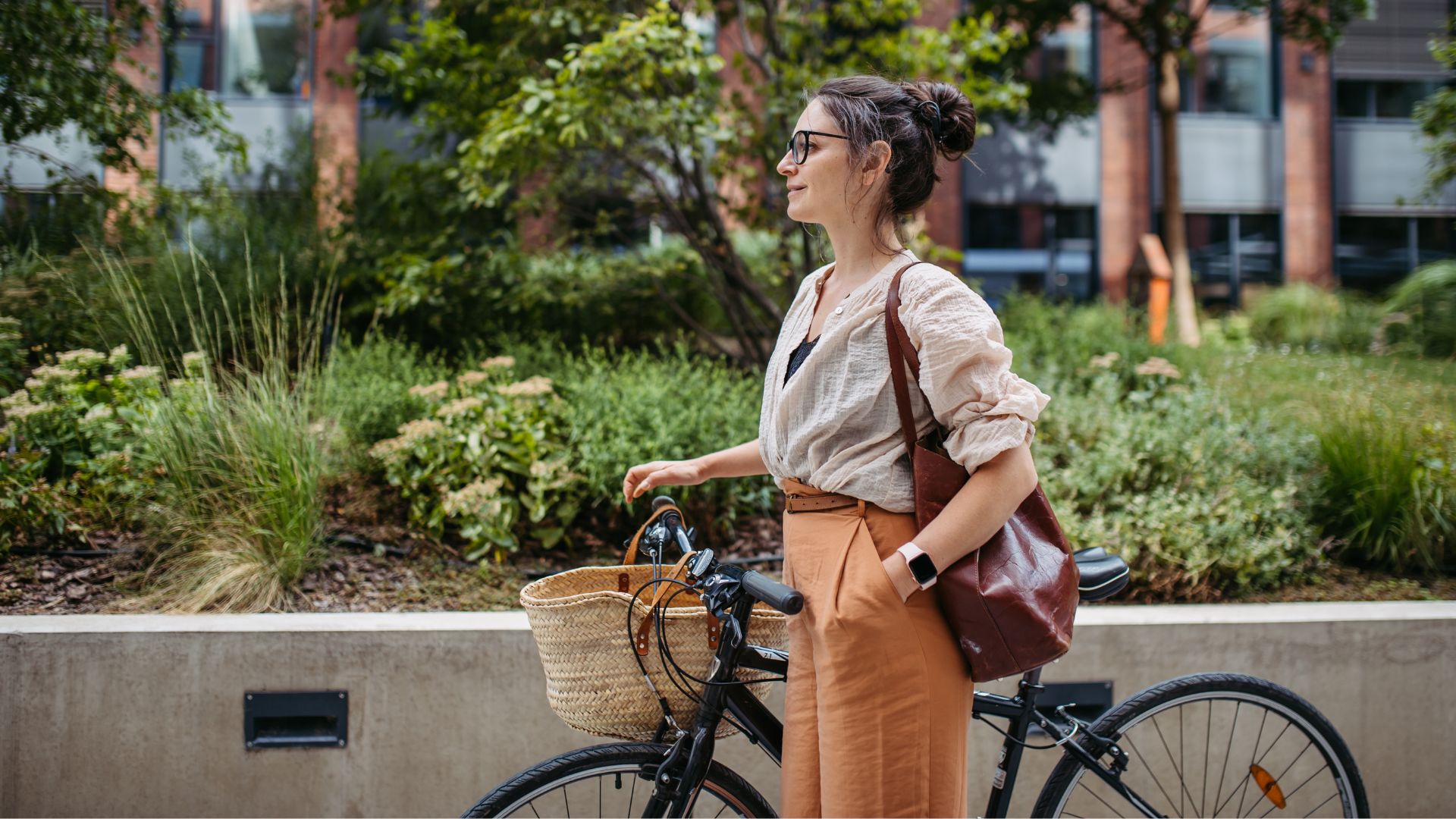
If you can skip one bus or train in favour of a walk or cycle, your mind and body will thank you. Not only is fresh air and sunlight in the mornings great for your circadian rhythm and concentration, but it can also help you get some light exercise, which promotes good circulation and cardiovascular health.
A study also shows that as few as 4,000 steps can make an overall difference to our health, which is about equivalent to a half an hour walk for many people.
Use a stability ball as a chair
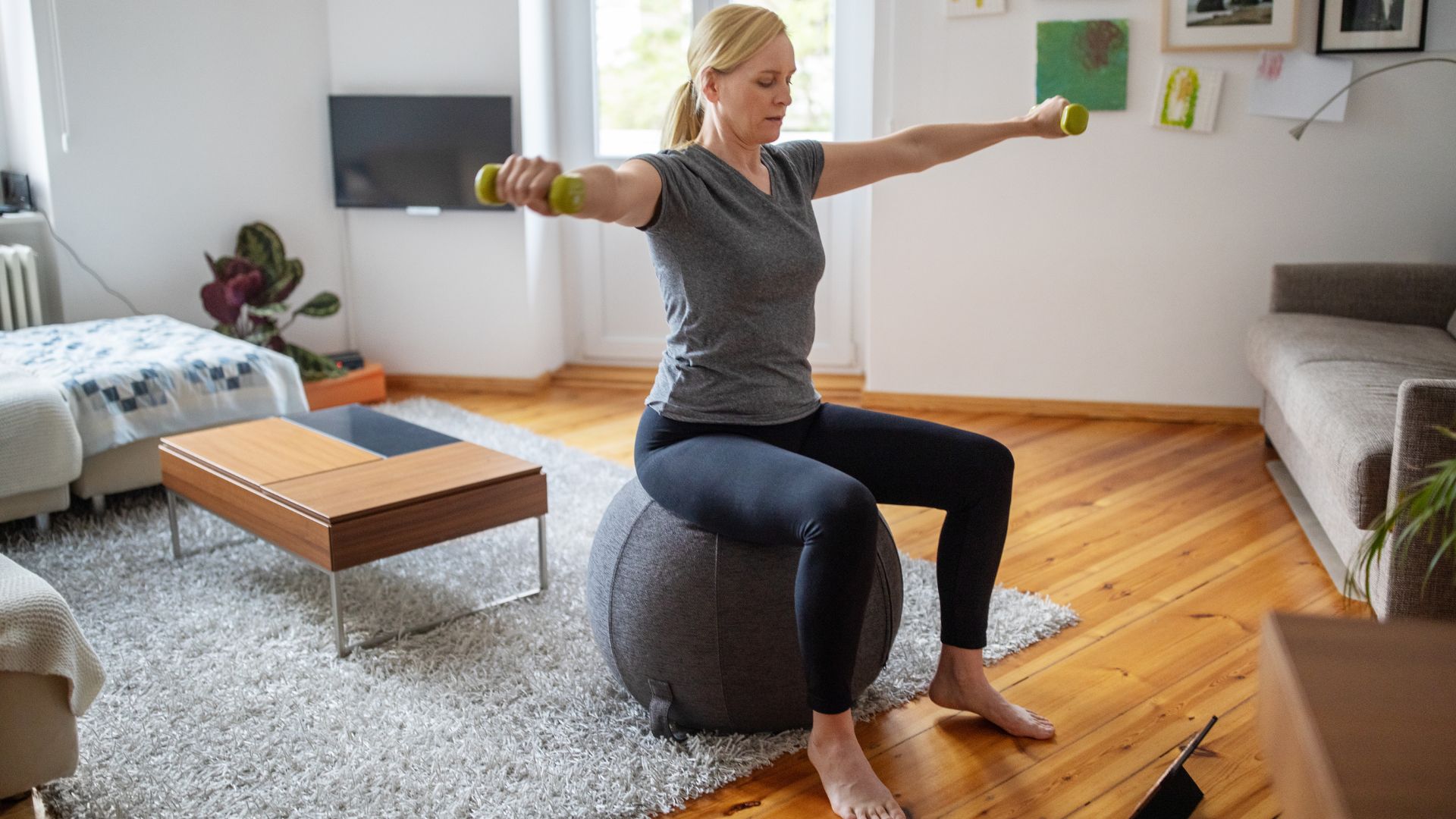
You don't even have to do gym ball exercises to make use of this accessory. Simply sitting on a gym ball and using it as a chair can help improve your posture as it forces you to activate your core to stay upright, strengthening the key muscles over time.
However, it's still important to stand up every hour to give your muscles a stretch.
Engage your core

Whether you're standing at a bus stop or sitting at your desk, you can be working on your core strength simply by holding in your core.
To 'brace' your core, imagine pulling in your belly button towards your spine (without moving your stomach) and holding it there. Slowly, breathe in and out, keeping this contraction stable. Try and do this for 30 seconds at a time before having a break.
Set micro goals
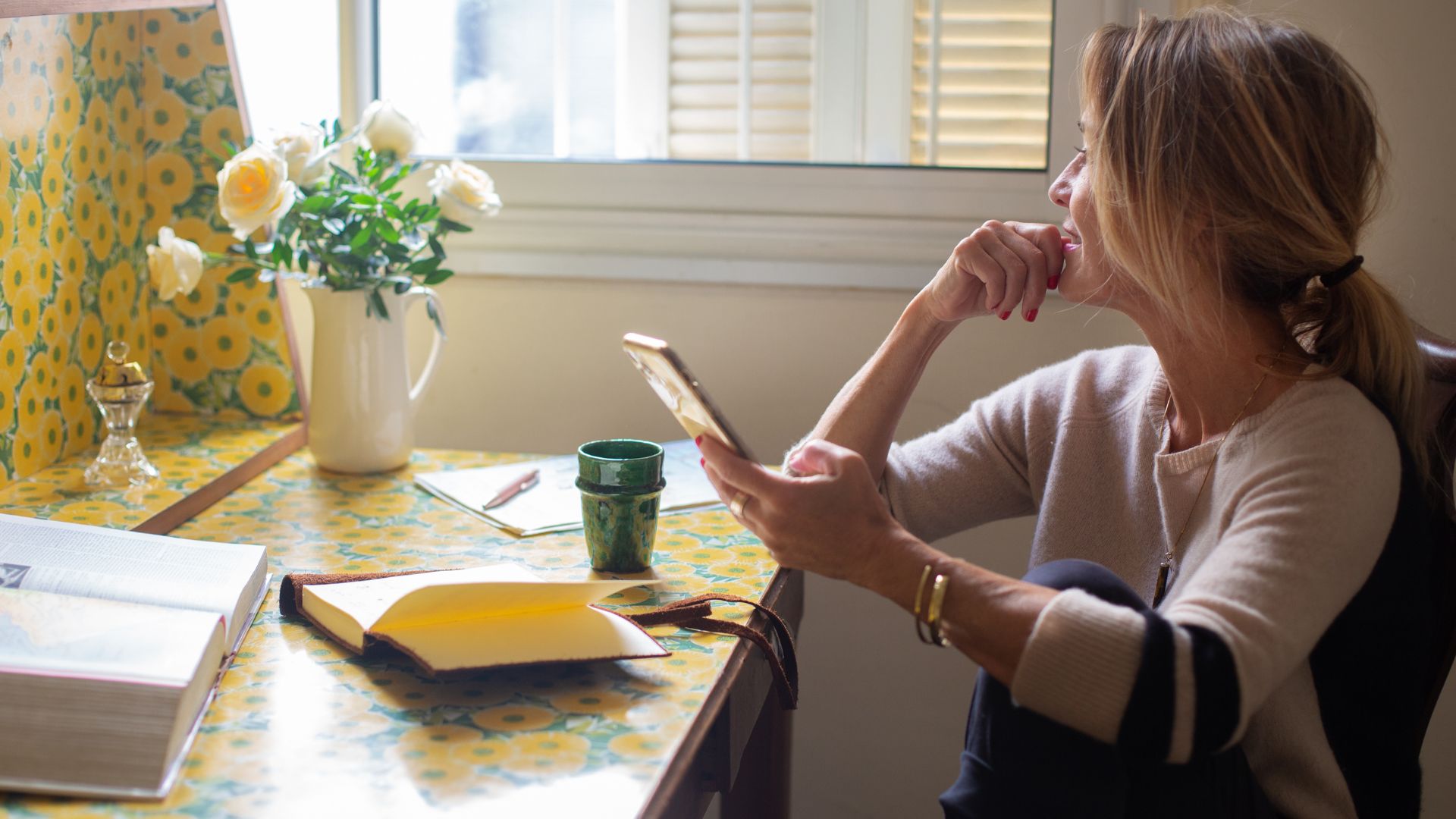
Whether it's getting 10 minutes of sunshine on your face before you look at your phone or swapping the lift at the office for the stairs, stacking up small micro goals is all you need to make a difference.
Start with one or two from this list and see how you go. When they become part of your daily life, try and add a few more. Before you know it, you have a new and improved routine.
Stay hydrated
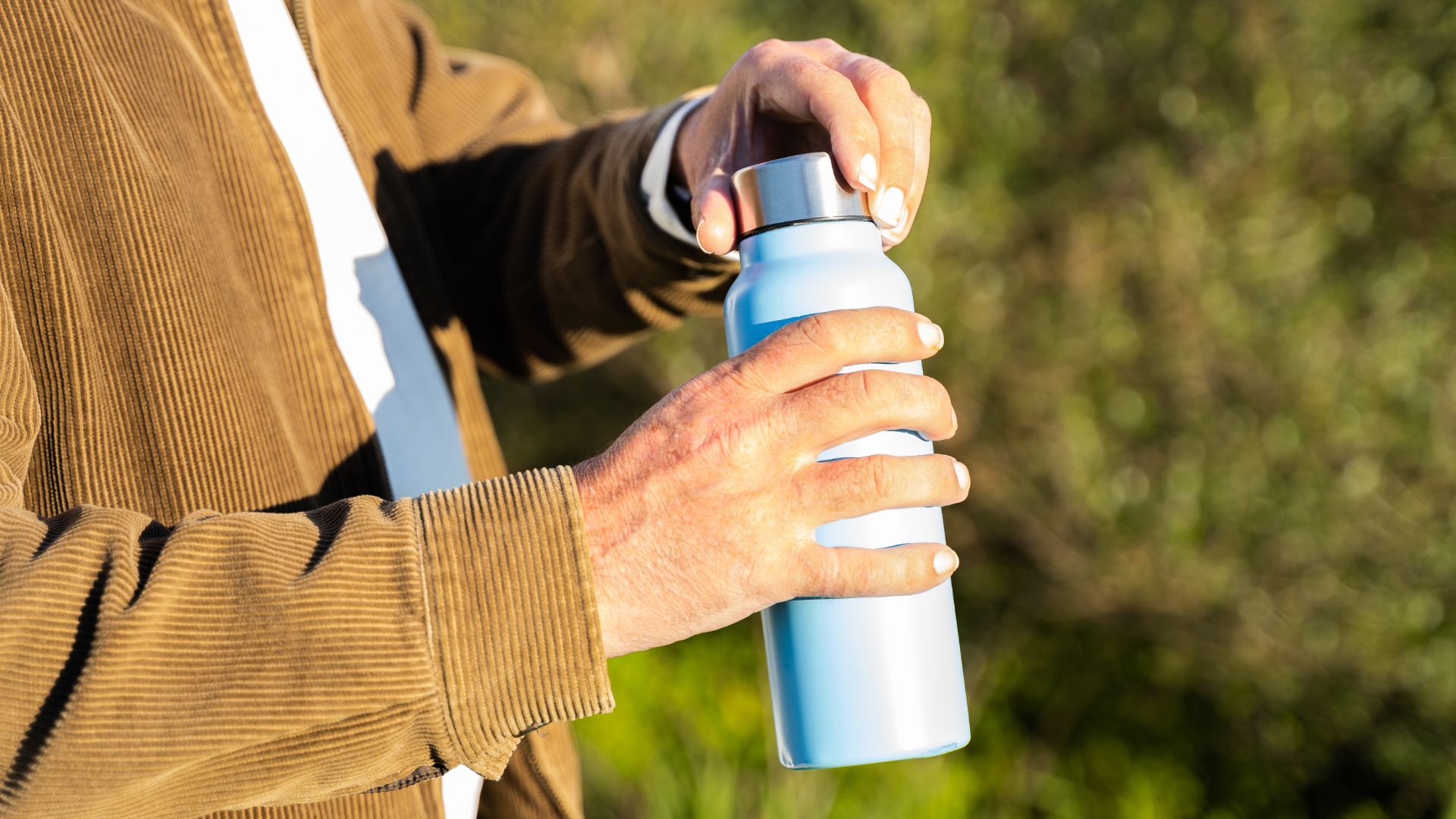
It's important to drink plenty of water every day, but you can also stay hydrated in other ways. For example, eat lots of hydrating foods like apples, cucumber, bell peppers, and citrus fruits.
You can also replenish your hydration levels naturally with Himalayan salts. This tops up your levels of magnesium, calcium, sodium, potassium, and other minerals that play an essential role in bodily functioning. They are known as electrolytes.
Try foot yoga
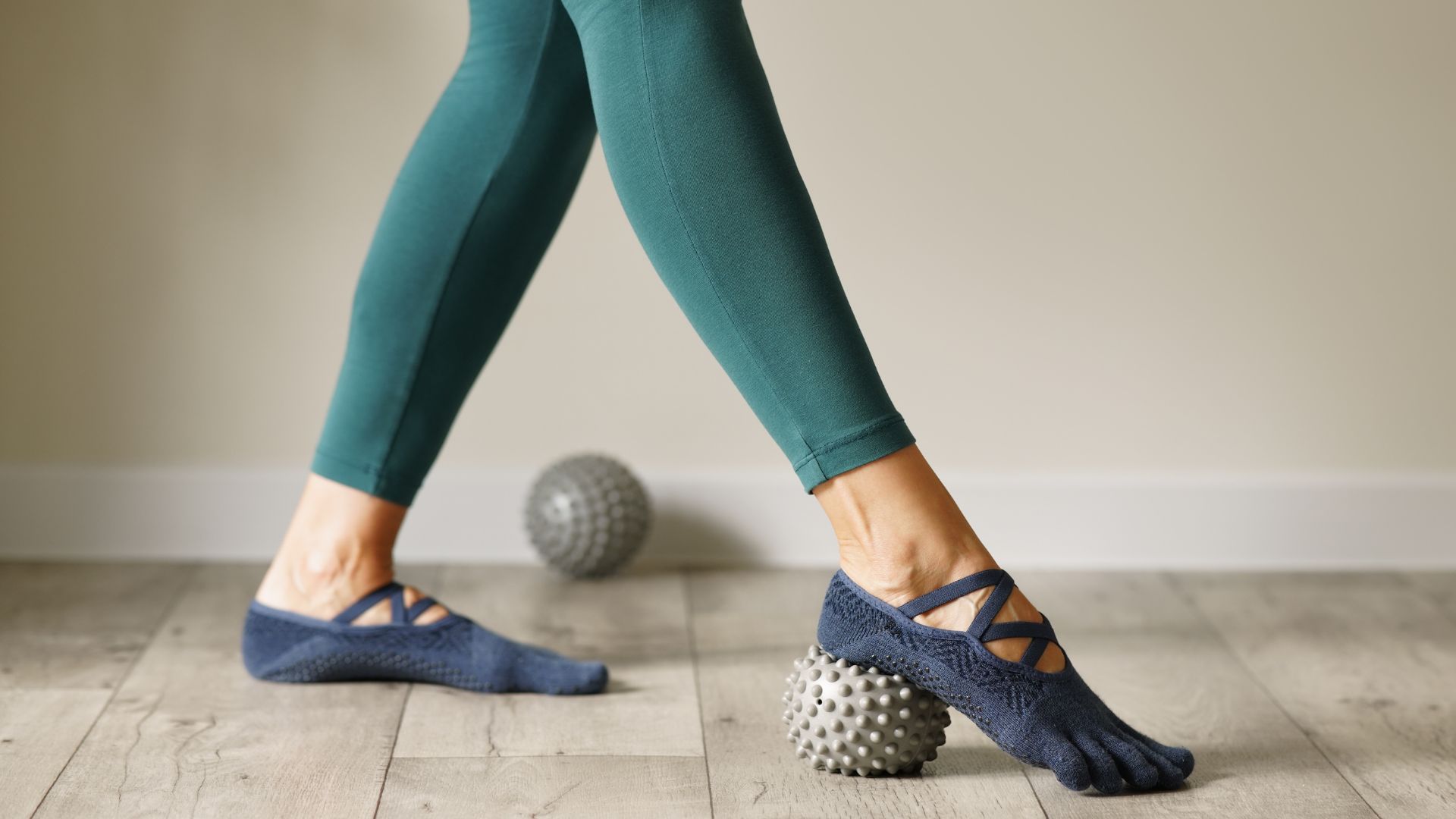
Yes, foot yoga. Doing stretches of the muscles in your foot and around your ankles can improve balance, strength, and flexibility, all of which are important for the health of your feet - a greatly underappreciated part of the body.
Having good toe flexibility also means you'll have a better range of motion and less stiffness, which can help with everyday movement.
Do pelvic floor exercises
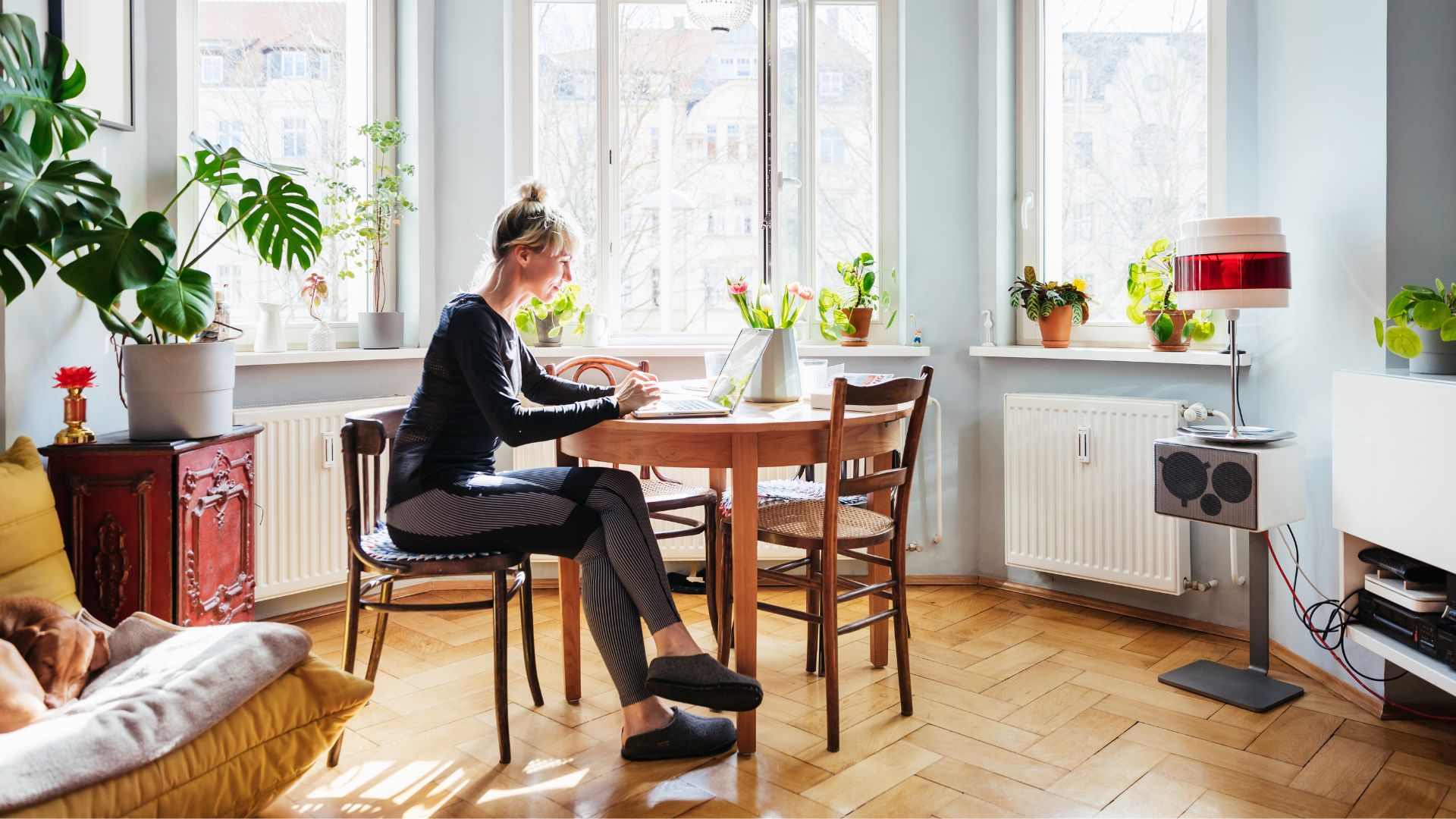
The pelvic floor is a sling of muscles that sit in the pelvis and help support organs like the uterus, bladder, and bowel. In turn, this helps with bladder and bowel functions, helps stabilise the core muscles and the spine.
While we focus on pelvic floor health in women, as it declines with childbirth and menopause, it's important for everyone - regardless of age and gender - to practice kegels for good pelvic floor stability.
Stretch out your neck and shoulders

Stretches for the neck and shoulders include shoulder rolls, neck tilts, and chin tucks, as well as more dedicated upper-body stretching routines.
As well as helping you ease into exercise by boosting flexibility and range of motion, these stretches help to reduce tension from sitting down for long periods and improve posture.
Chew food properly
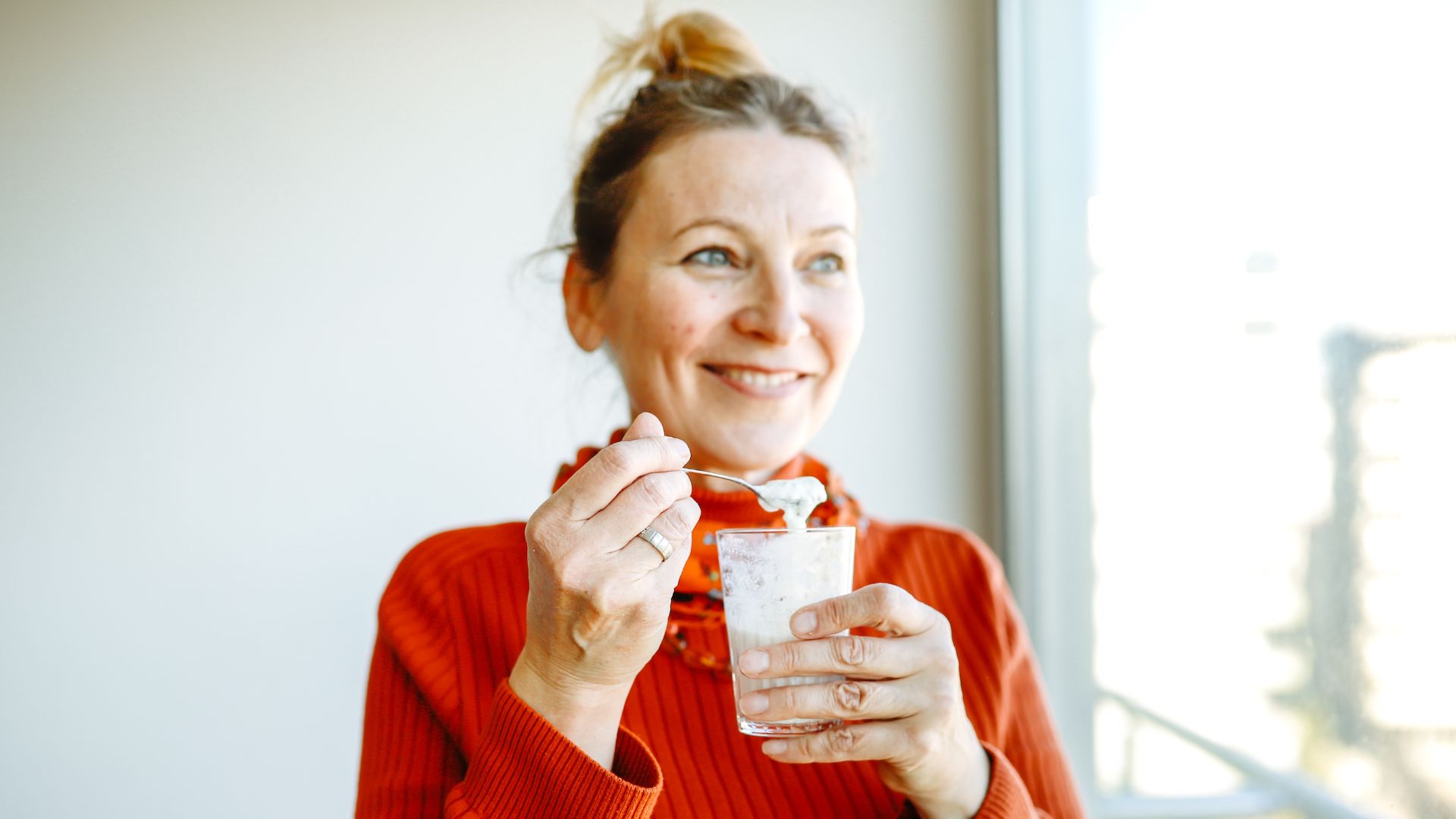
It might be obvious that you should chew your food properly, but this is about more than just good manners.
When you chew your food properly, you produce more digestive enzymes, which help to break down food, improving digestion and overall gut health.
Give yourself a break

While it's very easy to incorporate better daily habits into your routine through simple steps like doing more steps, drinking more water, and moving regularly, it's also important to give yourself a break if you're suffering from exercise burnout, regular burnout, or a lack of motivation due to a busy schedule and stress.

Grace Walsh is woman&home's Health Channel Editor, working across the areas of fitness, nutrition, sleep, mental health, relationships, and sex. She is also a qualified fitness instructor.
A digital journalist with over seven years experience as a writer and editor for UK publications, Grace has covered (almost) everything in the world of health and wellbeing with bylines in Cosmopolitan, Red, The i Paper, GoodtoKnow, and more.
You must confirm your public display name before commenting
Please logout and then login again, you will then be prompted to enter your display name.